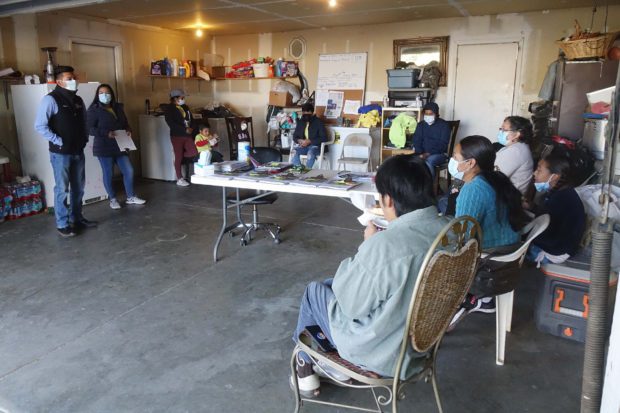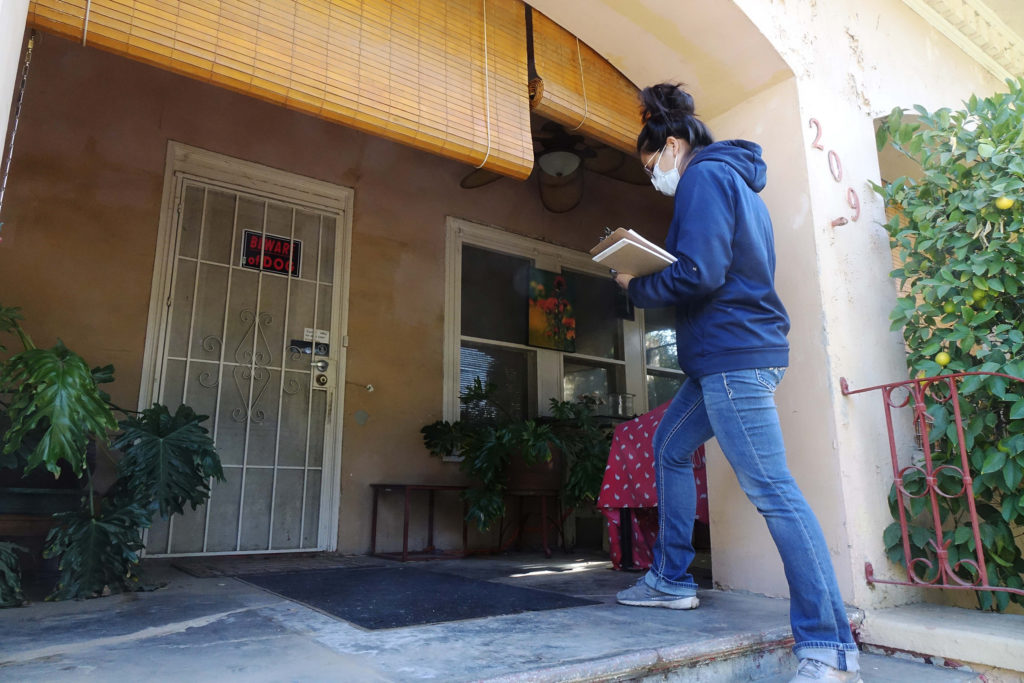

On a hot afternoon in August, a candidate for Madera City Council District 5, Elsa Mejia, 32, met at her parents’ house with Minerva Mendoza, 31, and Jose Eduardo Chavez, 28, to discuss the state of her campaign and their role as new campaign managers. When Elsa left the house briefly, Mendoza and Chavez took the opportunity to reorganize the garage of the house as a campaign headquarters.
Mejia and her campaign managers are all of Mixtec origin; Mixtecs are one of the 16 indigenous communities of Oaxaca, Mexico. And none of them had previous political experience—besides voting. In fact, no one involved with Mejia’s campaign had prior political experience.
But on Nov. 2, the day of the special election to fill the District 5 vacancy, the talent, intelligence and maturity of the young, inexperienced team showed off. They transformed the campaign into a true community dialogue and political education. The result? Mejia obtained an overwhelming victory with 61.38% of the votes and greater electoral participation. Slowly, Mejia’s garage returned to normal.
Mejia was born in Fresno but she has spent all her life in Madera, a rural city of more than 64,000 people, with a big percentage of immigrant workers from Oaxaca.
A granddaughter of a bracero farmworker, her parents followed the path of thousands of migrant workers who came to California to work in the fields of the San Joaquin Valley.
Since she was young, Mejia has been involved in community projects. Later, she studied journalism at Fresno State. She worked 10 years at the Madera Tribune, was the editor of Fresno’s monthly Community Alliance and currently works at a local union.
“I am happy, this was a team effort of many people, and a serious dialogue with my constituency, in which they expressed their concerns and their vision for the district,” said Mejia shortly after her victory was made official. “To make Madera a better place to live, all City Council members have to work together.”
During the intense campaign, there were two debates. The first took place on Oct. 20, and it was organized by Madera Young Professionals. The second one, on Oct. 25, was organized by the Madera Coalition for Community Justice.
In both debates, Mejia had the chance to explain her vision for the district and to respond to numerous questions. Her opponent, Matilda Villafan, didn’t participate in either debate. Villafan had the strong support of the mayor, Santos Garcia, and the Madera County Democratic Party. Mejia chose to run as an independent.
“Elsa represents part of the community, she is part of it and I think people felt it that way,” said Johanna Torres, 32, Mejia’s campaign treasurer. “I am sure she will try to keep good communication with her constituency.”
Torres mentioned that Mejia’s campaign created interest among young people and immigrant groups. “We noticed big enthusiasm, and in this election more people than normal voted. I would like to see more people attending the city’s meetings.”
At the beginning of October, Mejia’s campaign was shocked when it realized that dozens of her signs had been stolen, even those in the front yard of her parents’ house. Her opponent didn’t report being a victim of a similar crime.
Clearly, someone was concerned about Mejia’s growing momentum. During her campaign, Mejia talked about supporting small businesses, youth programs, street safety and making visible the presence of immigrant workers who are politically ignored.
Her participation at the Sept. 25 Old Timers’ Parade, which covers part of District 5, was memorable. Her float featured a traditional Oaxacan music band (the San Martin Itunyoso band, mostly composed of young Triquis, another of the indigenous communities of Oaxaca) and the Diablitos, traditional Mixtec dancers, with their sophisticated costumes and masks brought from Oaxaca. Many participants at the parade showed their emotion at the music and the dances.
“Yeah, there are lots of people of Mexican origin in District 5, and many of them are from Oaxaca. And our culture is never exposed at public events organized by the City,” said Daisy Mejia, 35, Mejia’s oldest sibling. “This had an impact, many people felt identified.”
Besides Daisy, Mejia has other siblings: Emanuel, 31, Patsy, 23, and Irvin, 23. Four of them attended four-year colleges and one is a professional auto mechanic. Not bad for a family of farmworkers who were undocumented a big part of their life.
Mejia is aware that she will be part of a local government on which to achieve improvements for the city she will need to negotiate with her colleagues. However, she wants to help her community raise its voice—a voice that remains mostly ignored and marginalized since its presence started to be noticed in the San Joaquin Valley in the mid-1980s. She has taken an important step forward not only by winning the election but also by exposing this community and its culture.
The new Madera City Council member will be sworn in on Dec. 1.
*****


Very nice piece, Eduardo. Congrats to her. I shot a piece on the Mixtecs in Madera for The Madera Tribune.